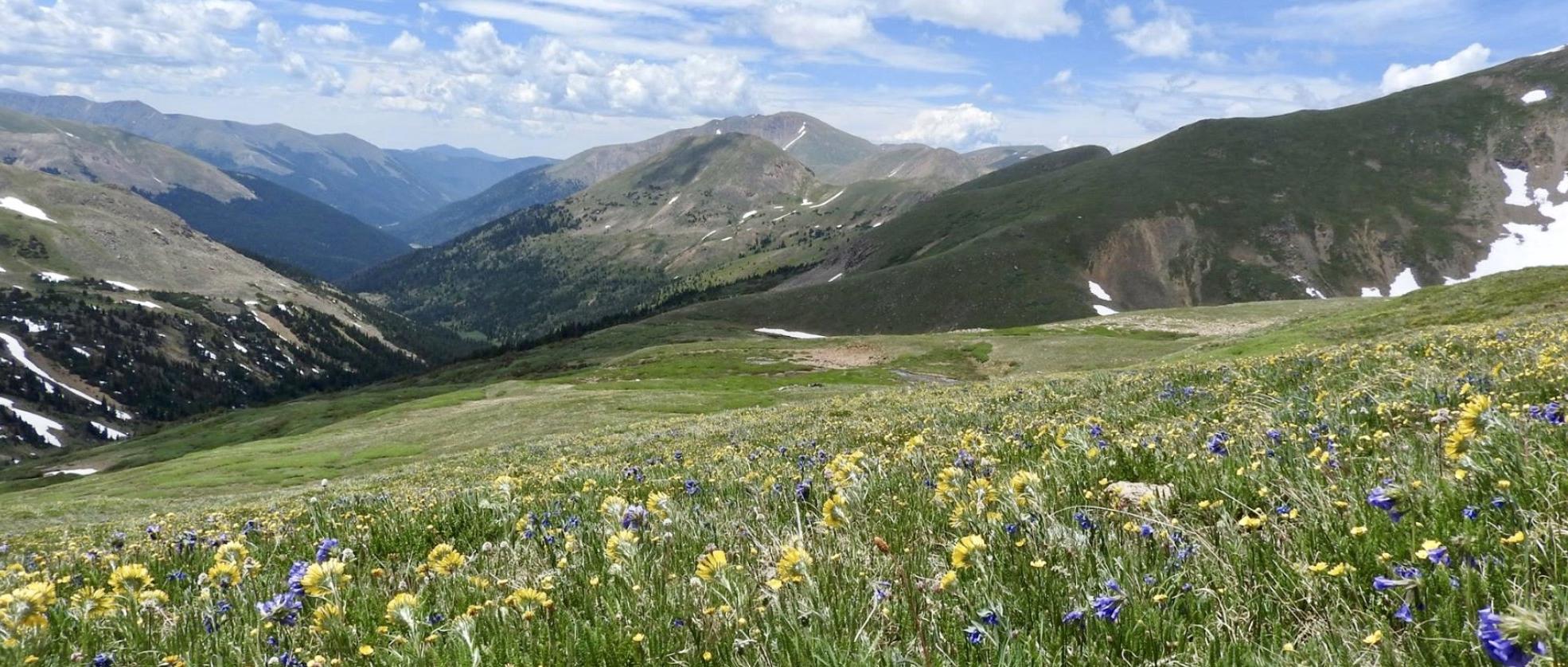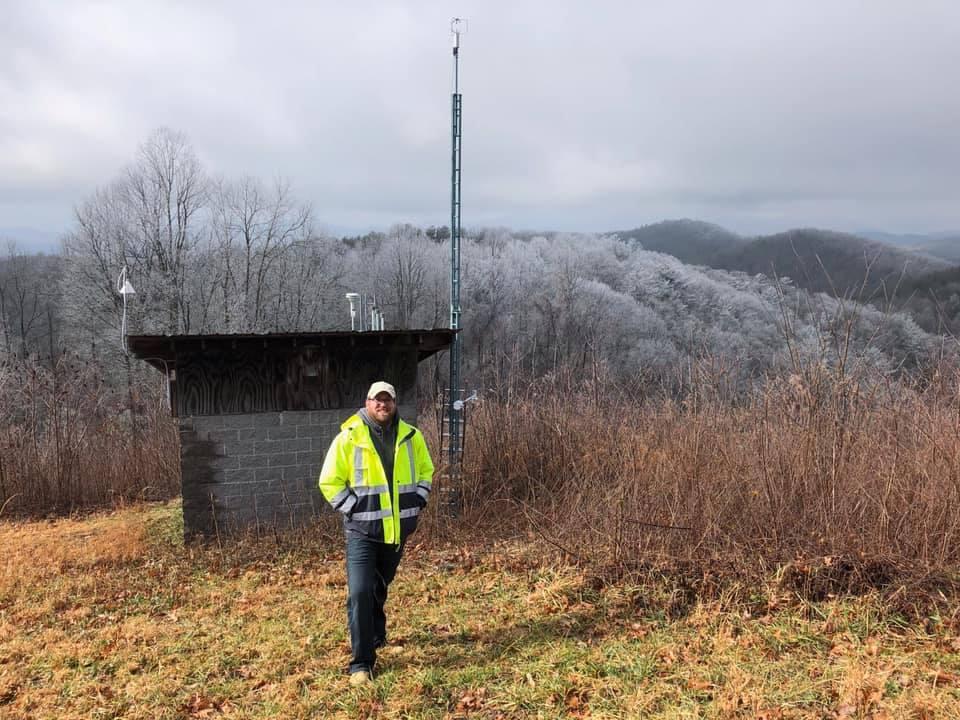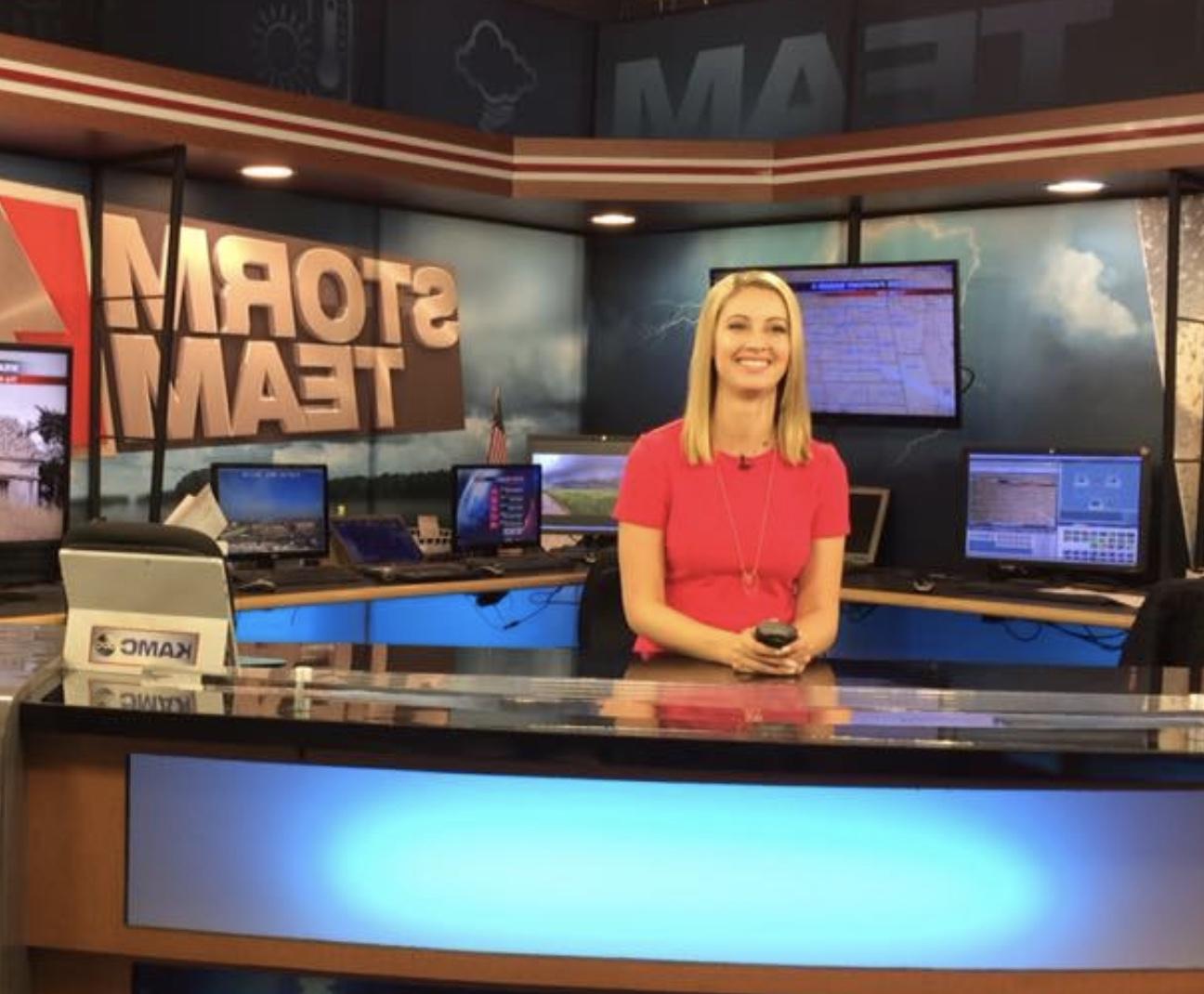Applied Geology
Learn more about a Bachelor's degree or minor in Geology here.
The Department of Earth and Atmospheric Sciences (EAS) at MSU Denver provides an exceptional education in Applied Geology (GEL), Environmental Science (ENV), Geography (GEG), Geographic Information Systems (GIS), and Meteorology (MTR), utilizing Colorado’s diverse geography and weather patterns as a natural laboratory. Our mission is to promote science literacy, inspire lifelong learning, and foster an appreciation of the Earth system. With small class sizes, field experiences, and lab work, we ensure students gain practical knowledge and skills. Graduates are well-prepared for employment or further education, thanks to our dedicated faculty who, as teacher-scholars, promote active learning, advise students towards their career goals, and engage in scholarly activities in Earth system science. Through our majors, minors, and certificates, we equip students to make a positive impact on the world.

The EAS department houses several programs that offer Bachelor's degrees, minors, and a certificate. We also offer a large range of General Studies courses.
Learn more about a Bachelor's degree or minor in Geology here.
Learn more about a bachelor's degree and minor in Geography or a minor in Sustainability Studies or Climate Change here.
Learn more about a Bachelor's degree in Geography with emphasis in GIS, a minor in GIS, or a certificate in GIS which can be completed fully online.
Learn more about a Bachelor's degree or minor in Environmental Science. An option for teacher licensure can also be found here.
Learn more about a Bachelor's degree, minor in Meteorology, or minor in Climate Change here.
Learn more about the variety of General Studies courses offered in the EAS department, from Natural and Physical Science to Social and Behavioral Science, Global Diversity, and Multicultural offerings.

Need an Earth and Atmospheric Science advisor? Looking for faculty office hours or contact information?
Our EAS Faculty and Staff would be happy to help! Click below.



We are proud to offer several scholarships through the MSU Denver Foundation. Applications must be submitted through the Foundation’s online application system, with a priority deadline of March 1st each year. More information is available on the MSU Denver Office of Financial Aid and Scholarships website: http://6sz8.cnlawyer18.com/financial-aid/scholarships/#foundation
This fund provides scholarships for students pursuing majors in the Department of Earth and Atmospheric Sciences (EAS). Dr. Roberta Smilnak, Professor Emeritus and former EAS Department Chair, taught many courses in Geography and Environmental Science from 1974 to 2000.
This scholarship provides financial assistance to deserving Meteorology majors. Leon “Stormy” Rottman was a fixture on Denver television Channel 9 for almost 20 years and was one of the first TV weathermen to have credentials from the American Meteorological Society.
This scholarship is open to students with any declared completion credential (degree or certificate) in Earth and Atmospheric Sciences (EAS). Chelsea was a passionate bright light in the MSU Denver community, and a student of GIS and Environmental Science. The fund was established to continue Chelsea’s fierce pride in the life-changing opportunity provided by an MSU Denver education.
This scholarship provides financial awards to students studying Environmental Science. Peter Durbin was an outstanding student and member of the EAS Department.
The EAS Department offers professional development funds for EAS students, with applications accepted each fall and spring semester. Please contact the EAS Department Chair for more information.
This fund provides financial support to students for professional development pursuits, including participation in field experience courses, in connection to Earth and Atmospheric Sciences (EAS) fields.
Read “Talk about the Weather,” an article in MSU Denver RED on our Broadcast Meteorology Alumni.


Professor Sarah Schliemann, a teaching excellence award winner, has a Ph.D. in Forest and Wildlife Ecology. She teaches Landscape Ecology, Mountain Environments, and an intensive Environmental Field Studies for senior Environmental Science majors. You can find her in the lab, up in Rocky Mountain National Park taking measurements for her carbon cycling research, advising students on Undergraduate Research, or taking her classes out in the field.
Graduates from the Department of Earth and Atmospheric Sciences (EAS) at MSU Denver are well-equipped for a large variety of rewarding careers. Our alumni find opportunities in fields such as environmental consulting, urban planning, meteorological forecasting, natural resource management, geology, and geospatial analysis.
The EAS Department partners with MSU Denver’s Classroom to Career Hub (C2Hub) to support students in their career journeys. The C2Hub provides assistance with internships, as well as the entire job search process. Check out this C2Hub job board focused on positions related to EAS!
Credits: 3
Description: This course explores the various elements of the physical environment and interactions between the elements. The course emphasizes the atmosphere (weather and climate), the lithosphere (soils, geology, and landforms), and the hydrosphere (oceans, streams, and groundwater).
General Studies: Natural and Physical Sciences
Guaranteed Transfer: GT-SC2
Credits: 3
Prerequisite(s): Minimum performance standard scores on reading, writing, and mathematics preassessment placement tests
Description: This course introduces students to environmental concepts and issues from an interdisciplinary approach. Students will gain an understanding of the scientific methods and techniques needed to understand the and analyze environmental issues such as ecology, human population growth, soils and agriculture, deforestation, urbanization, air pollution, freshwater resources, ocean pollution, climate change, fossil fuels, alternative energy sources, waste disposal, as well as environmental ethics and policy. Course topics will be complemented with computer exercises.
General Studies: Natural and Physical Sciences
Guaranteed Transfer: GT-SC2
Credits: 4
Description: This course introduces the basic theories, concepts, and assumptions used in geology, utilizing both lecture and laboratory components. It includes earth’s internal systems from core to crust, as well as the dynamics of the lithosphere with its processes, products, and effects on the environment. Students will learn to identify common rocks and minerals.
Field Trips: A field trip is required.
General Studies: Natural and Physical Sciences
Guaranteed Transfer: GT-SC1
Credits: 3
Prerequisite(s): Minimum performance standard scores on reading, writing, and mathematics pre-assessment placement tests
Description: This course introduces the fundamental physical processes in the atmosphere–heat and energy, temperature, pressure, wind, clouds, precipitation, and stability. These concepts provide the basis for understanding weather systems, such as thunderstorms, tornadoes, and hurricanes. These processes are also applied to climatic patterns and the impacts of human activity on weather and climate, such as air pollution and climate change. An optional 1-credit lab course, MTR 2020 Weather and Climate Lab for Scientists, is available for students interested in additional experience in the measurement and analysis of atmospheric data, and is required for some science programs.
General Studies: Natural and Physical Sciences
Guaranteed Transfer: GT-SC2
Credits: 4
Prerequisite(s): Quantitative Literacy General Studies requirement should be completed before taking this class.
Description: This is a foundation course that provides students with the basic knowledge of Geographic Information Systems (GIS) with regard to theoretical, technical, and application issues. It introduces and provides direct experience with the techniques used to analyze and display spatial data using GIS. The skills and knowledge developed in this course will be used to support upper-division courses.
Credits: 3
Description: This course is an introduction to the transdisciplinary field of sustainability that examines current debates about how to respond to the problems of climate change, environmental degradation, and social inequalities from the local to the global scales. The course begins with an overview of the historical conditions that continue to shape the current human imprint on the global environment. It also explores how different perspectives from the natural and social sciences can be used to examine the environmental implications of human endeavors. Throughout the course, emergent sustainable practices, such as renewable energy, sustainable agriculture and food systems, and urban sustainability, are discussed to show how communities across the world are finding sustainable and equitable solutions.
University Requirement(s): Social and Behavioral Sciences
Guaranteed Transfer: GT-SC2

Your generous donations support MSU Denver students pursue their dreams.
Your tax-deductible donation will help the Department of Earth and Atmospheric Sciences continue to provide a quality and competitive education for our students.
Have a question? We can answer it!
Whether you have a question about a prerequisite, need help registering for a course, or you would like to chat about one of our majors, we are here to help. Click below to send us an email!
Email UsPhone: 303-615-1177
Email: [email protected]
Office Location:
Science Building
2nd Floor – #2028
Auraria Campus
Mailing Address:
Metropolitan State University of Denver
Department of Earth and Atmospheric Sciences
Campus Box 22
P.O. Box 173362
Denver, CO 80217-3362